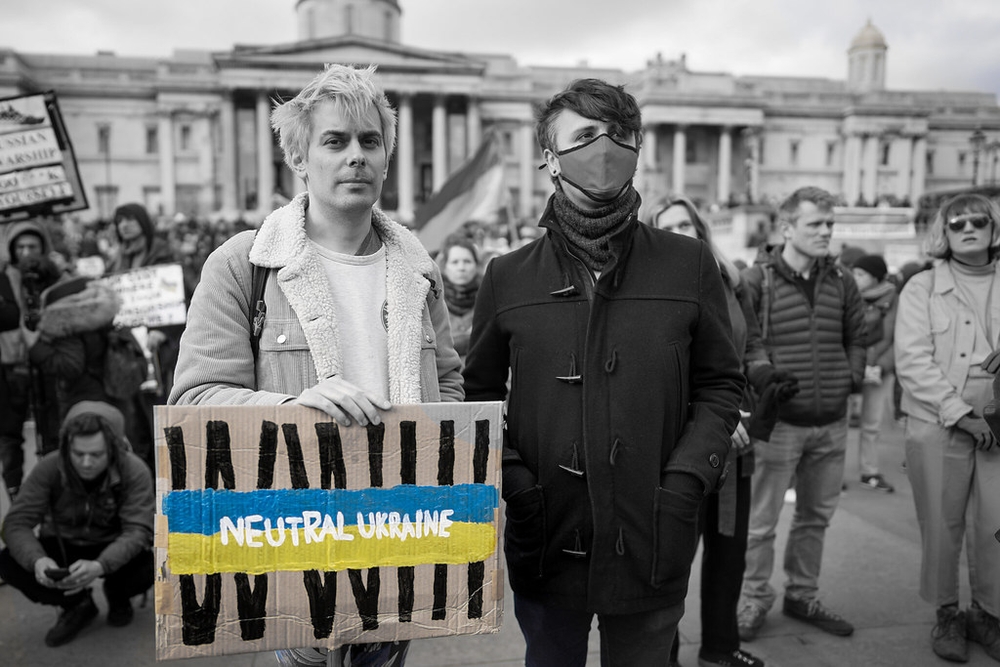Published
- 3 min read
Why Neutrality Could Secure Lasting Peace in Ukraine

Why Neutrality Could Secure Lasting Peace in Ukraine
As the Russo-Ukrainian conflict continues to shape global geopolitics, the search for a sustainable solution grows increasingly urgent. A cornerstone of any successful resolution could be Ukrainian neutrality. Neutrality, often dismissed as unrealistic or undesirable, may hold the key to breaking the cycle of conflict that has defined relations between Russia and Ukraine for decades.
What Does Neutrality Mean for Ukraine?
Neutrality, in geopolitical terms, signifies a nation’s decision to refrain from joining military alliances or participating in conflicts that do not directly threaten its sovereignty. For Ukraine, neutrality could mean stepping away from NATO aspirations while securing robust international guarantees for its independence and territorial integrity.
This path has historical precedents. Countries like Austria adopted neutrality during the Cold War, enabling them to maintain sovereignty without becoming a battleground for superpower rivalry. Could Ukraine emulate such models to establish its own security while appeasing its geographically significant neighbor?
Addressing Security Concerns
Critics argue that neutrality would leave Ukraine vulnerable to Russian aggression. However, a well-negotiated neutrality agreement could include binding security guarantees from major powers, enforced through mechanisms that deter future violations. For instance, a coalition of international observers and peacekeepers could oversee compliance, while economic sanctions could act as a deterrent against aggression.
By embracing neutrality, Ukraine could de-escalate tensions that have fueled the current war. The cessation of NATO expansion eastward—a critical grievance cited by Moscow—could pave the way for meaningful dialogue and reduce the immediate threat of further military confrontation.
Economic and Diplomatic Benefits of Neutrality
Neutrality could unlock substantial economic and diplomatic opportunities for Ukraine. Freed from the geopolitical tug-of-war between Russia and the West, Ukraine could focus on leveraging its strategic location as a bridge between Europe and Eurasia. Investments in infrastructure, trade, and energy projects could thrive in a stable and predictable environment.
Additionally, neutrality could restore Ukraine’s role as a mediator rather than a participant in global rivalries. By aligning with neither side, Ukraine could rebuild its economy and social fabric while strengthening regional partnerships.
Learning from History
Neutrality is not an untested concept. Nations like Finland and Austria adopted neutral status during periods of heightened international tension, and their economies and democracies flourished. While Ukraine’s geopolitical landscape differs significantly, the principle remains applicable: neutrality can shield smaller nations from becoming proxies in great-power conflicts.
Moreover, critics of neutrality often overlook the fact that Ukraine’s previous alignment toward non-alignment did not lead to its downfall. The 2010-2014 period under President Viktor Yanukovych saw Ukraine embrace neutrality—a status undermined not by its own failures but by external political turbulence.
Moving Beyond Zero-Sum Thinking
The current debate over Ukraine’s geopolitical alignment often devolves into zero-sum thinking: a win for NATO is seen as a loss for Russia, and vice versa. Neutrality disrupts this binary perspective by offering a win-win solution. It allows Ukraine to maintain its sovereignty and democratic aspirations while reducing Russia’s perceived threats.
This shift in approach could lead to a broader dialogue on European security architecture. By acknowledging Russia’s security concerns while upholding Ukraine’s sovereignty, the international community can create conditions for lasting peace.
The Role of International Actors
For neutrality to succeed, international actors must play a constructive role. The United Nations, European Union, and Organization for Security and Co-operation in Europe (OSCE) could mediate and oversee agreements. Meanwhile, guarantees from the United States, Russia, and other major powers would provide the necessary assurance of commitment to Ukraine’s sovereignty.
Neutrality does not mean abandonment; rather, it represents a collaborative effort to redefine Ukraine’s place in the global order. For its part, Ukraine would need to reform its governance structures to ensure transparency and resist external meddling.
A Vision for Peace
Neutrality offers a pathway toward de-escalation, stability, and prosperity. While challenges remain, it is imperative to explore solutions that prioritize long-term peace over short-term gains. The alternative—continued conflict and division—serves no one’s interests, least of all Ukraine’s.
As the international community grapples with the implications of the Russo-Ukrainian war, neutrality should not be dismissed out of hand. Instead, it should be viewed as a pragmatic and forward-thinking approach to resolving one of the 21st century’s most enduring conflicts.
